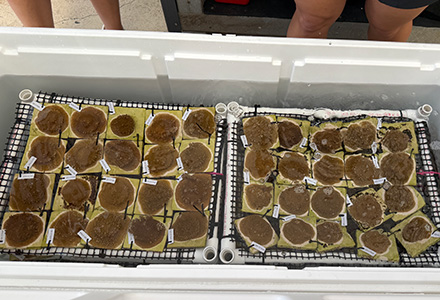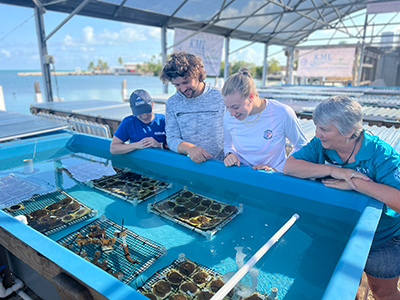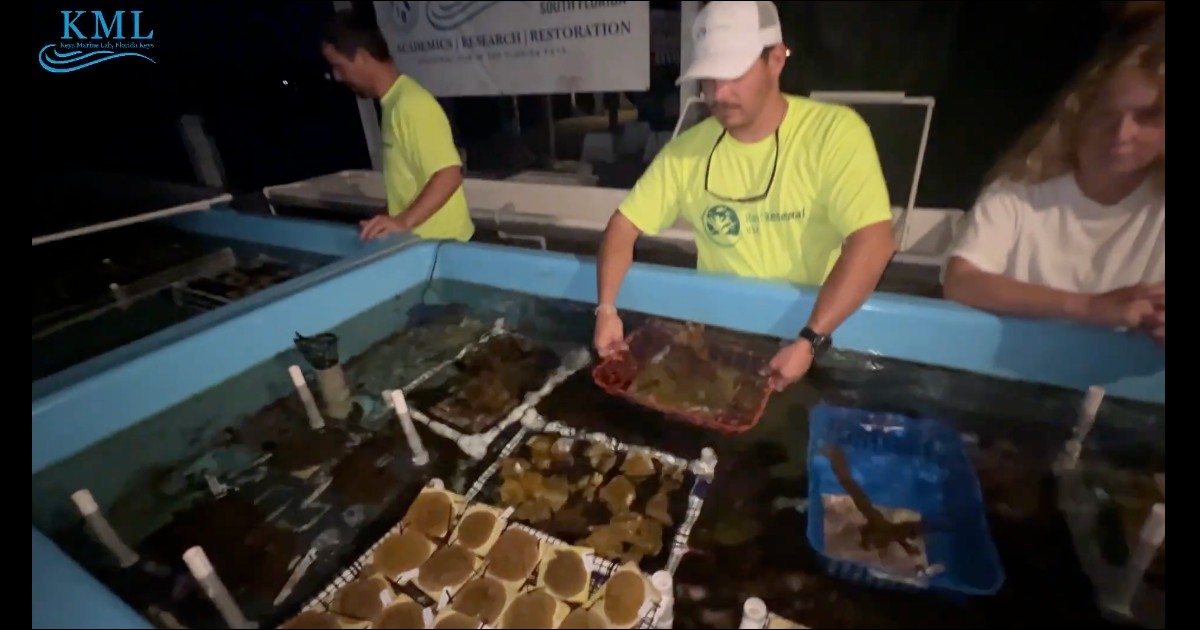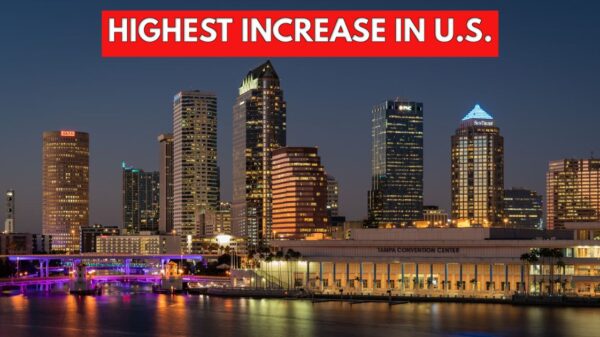By Sarah Sell, University Communications and Marketing
Florida’s Coral Reef experienced significant damage during a mass bleaching event in 2023, but recovery efforts are underway to restore this vital ecosystem.
On May 7, nearly 1,050 coral babies spawned and raised at The Florida Aquarium were delivered to Keys Marine Laboratory (KML) in the Florida Keys. The lab is operated by the Florida Institute of Oceanography (FIO) at USF.
Biologists and volunteers from the Florida Aquarium’s Coral Conservation and Research Center in Apollo Beach packed and loaded young elkhorn corals into coolers and drove them six hours. Once at the KML site in Long Key, they were transferred into temporary tanks to become acclimated to seawater before being planted on the reef or nurtured in ocean-based nurseries.

These elkhorn coral play an important role in the ocean’s ecosystem by providing shelter for marine life, protecting the coastline from hurricanes and supporting the state’s recreation, tourism and fishing industries.
“Elkhorn coral are one of the most critically endangered here on Florida’s reefs,” said Cynthia Lewis, director of KML. “It was one of the species of corals that fared the worst during that 2023 bleaching event. There was a frantic effort to get as many adult corals as possible into land-based nurseries where we could protect them.”
KML has one of the largest temperature-controlled seawater systems in the Florida Keys. With 60 tanks ranging from 40 to 1,000 gallons, the unique salt-water system allows for the study of corals and other marine organisms, as well as offers a refuge for them to live, rehabilitate and grow.
In 2023 during a record-breaking bleaching event, the KML housed more than 5,000 rescued corals for three months until temperatures returned to normal, and they could be returned to the reef.
A bleaching event occurs when water temperatures get too warm. Corals can become stressed, expelling algae living in their tissues and turning white. During such bleaching events, corals are more likely to experience die-offs.

The lab, located in the middle of the Florida Keys, provides easy access for partners such as The Florida Aquarium, Mote Marine Laboratory, Coral Restoration Foundation, Reef Renewal USA, Sustainable Ocean and Reefs (SOAR) and others to relocate corals from reefs to the seawater system for temporary refuge.
During similar bleaching events in 2014 and 2015, the Florida Aquarium rescued parent colonies from Florida’s Coral Reef, preserving the genetic diversity of the elkhorn coral.
Thanks to successful spawning at the conservation center, baby elkhorn corals were born in 2022 and 2023.
“The coral juveniles we just transferred to the KML are made up of many new mother and father combinations that we hope will be more resilient to future stressors,” said Keri O’Neil, director of the Florida Aquarium’s Coral Conservation Program. “Without human intervention, these parent corals would not be able to breed due to the loss in 2023.”
Once the new elkhorn becomes acclimated to the seawater at the KML, it will be distributed to partner organizations. The goal is to plant them on reefs within NOAA’s Mission: Iconic Reefs, one of the world’s most ambitious coral restoration projects, targeting seven critical sites in the Florida Keys National Marine Sanctuary.
“The Florida Aquarium’s work to raise and restore genetically diverse, resilient coral is a critical part of our collective fight to protect the Florida Keys National Marine Sanctuary,” said Katey Lesneski, research and monitoring coordinator for Mission: Iconic Reefs.
In the face of such an urgent crisis, restoration projects and collaboration between the Florida Aquarium, KML, and its partners are helping to bring new life to one of the state’s most important marine ecosystems.
“Even during a crisis, we can make a difference,” O’Neil said. “By working together, we’re protecting a reef that’s essential to our environment, our economy, and the thousands of species that call it home.”




















